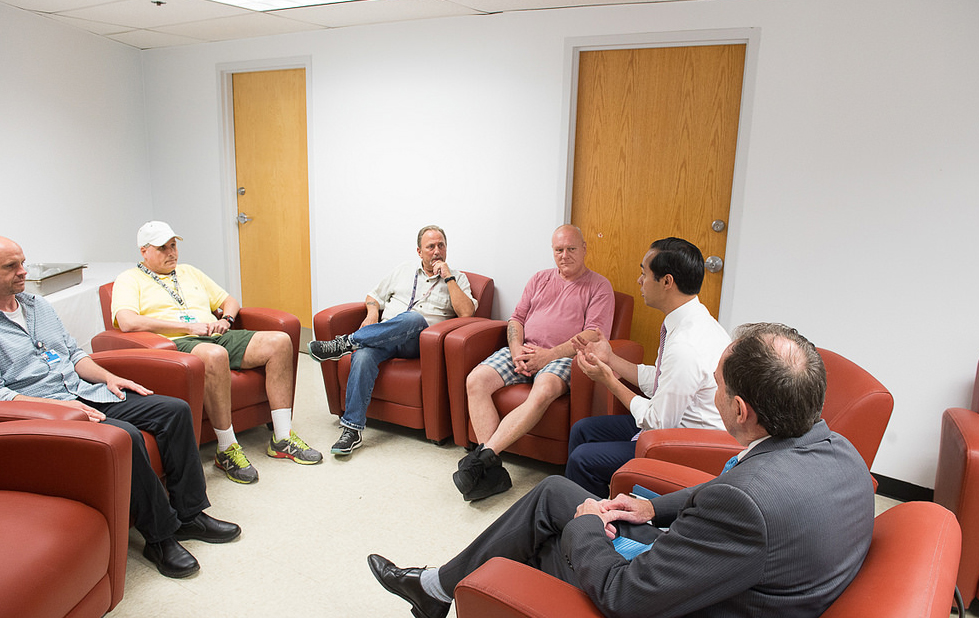The Importance of Understanding and Detecting Alzheimer’s Disease
Detecting Alzheimer’s is important for the patient and the family for many reasons. There are many changes that will take place when a person has Alzheimer’s. It will be very difficult on the patient, their families, and caregivers because of the changes. By ensuring Alzheimer’s (AD) is detected and diagnosed correctly, everyone involved is able to accept, plan, and work through what is happening easier and more efficiently. Knowing as much as you can about the disease is helpful for being prepared for the future.
What is Alzheimer’s and how is it diagnosed?
Alzheimer’s is the progressive mental deterioration occurring in middle to elder ages. It is one of the common causes of premature senility or dementia. It is detected many ways, these ways may include:
•Laboratory Testing
•Neurological and Neuropsychological Evaluations like MemTrax
•Mental and Physical Evaluations
•Medical History questionnaires
•Brain Scans
The combination of these tests can help doctors understand whether a person has one of the three categories of Alzheimer’s or not. These tests are done in a primary care physician’s office as well as a neuropsychologist, neurologist, and a geriatric psychiatrist or another trained AD detection specialist’s office. Family members and the patient’s caregivers will also be used in detecting Alzheimer’s as they notice certain factors that may lead to AD. With their supplied information and reports they can help the specialists compile the information to diagnose the patient.
The Stages of an Alzheimer’s diagnosis
When the diagnosis is presented by the patient’s primary care or specialists it will usually be in one of three stages and they vary from early to late in the disease. Alzheimer’s has 3 stages of severity that the patients, families and caregivers will need to deal with:
•Early- The patients has a mild onset of AD and here are some of the symptoms that are noticeable: frequent memory loss, possible difficulty in driving, problems expressing language and needing reminding of daily activities. This can last from two to 4 years
•Mild to Moderate- Patients are showing more symptoms of AD these symptoms can include: Not recognizing friends and family, delusions, getting lost in familiar surroundings, mood changes, as well as assistance with daily living activities. This can last to up to 2- 10 years
•Severe- This is more of the later stage AD the patients can show some of these severe symptoms coupled with the previous stages symptoms: Confusion with past and present, loss of verbal skills, Unable to care for themselves, Extreme mood swings, hallucinations and delirium, and will need round the clock care.
Why should you seek a diagnosis and be proactive with detection?
Because Alzheimer’s affects everyone involved diagnosis and detection early will help everyone to prepare a better lifestyle, possibly find ways to slow down the disease, and help to ensure that the best caregivers are found for the patients. If plans are made then patients are not taken off guard if something goes awry in their life before their legal, financial and living situations are taken care of. Treatments are available that will make things easier for you and your family. There are also support services that will help keep your family and you understand exactly what is going on and how to cope with it easier.
When Alzheimer’s sets in there will be many stages that you will go through, it is best not to go through denial, work with your physician to get the best treatment for you. It is because of this, that detecting and having AD diagnosed early is very important for your family and you. The best thing to do is to work on getting the most out of the benefits that are available from possible treatments, so you can have more time with your loved ones. Ensure you plan for the future so that both your loved ones and you are taken care of on this difficult journey, and the most important thing don’t forget to get some help for you and your loved ones so everyone understands what is going on. Doing all this can help you and your loved ones have more time together, and you will remember more of it.
As there is so little that can be done we strongly encourage you to stay proactive and encourage people around you to live healthy lifestyles and promote brain health awareness. By becoming a part of MemTrax you can do something great for your brain and contribute to the progression of Alzheimer’s research. Thanks for enjoying our blog!


